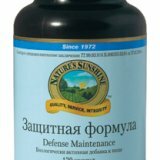Digestive enzymes: use

Indications for prescribing enzyme therapy are disorders of absorption of nutrients, a violation of the secretion of endogenous enzymes, as well as a violation of the motility of the gastrointestinal tract.
Digestive enzymes are often used in various gastroenterological pathologies.
Digestive enzymes, application to the doctor Feminine practice:
- Various diseases of the colon and small intestine.
- Various diseases of the stomach.
- Various diseases of the pancreas and bile duct.
To date, the world's pharmaceutical industry produces a huge number of different enzyme preparations( for example, Creon, Mezim-forte, Digestal and many others), which can differ from each other as a dosage of digestive enzymes in the preparation, and other additives.
All such preparations can be produced in different forms: capsules, tablets, powders, and micro-granules with an enteric coating. All enzyme preparations have their own specific composition. Preparations containing pancreatin( pancreatic extract) or containing enzymes of plant origin, an extract of the gastric mucosa. It should be noted that the preparation includes not only enzymes( digestive), but also other substances - bile components, adsorbents( dimethicone or simethicone), as well as components of the gastric mucosa.
The choice of the drug
When choosing a drug for treatment of a person with gastroenterological pathology, it is necessary to base on certain indicators:
- Relative and absolute content of enzymes in the preparation. For example, a high content of proteases is necessary for patients with low gastric secretion or with a painful form of chronic pancreatitis. With pancreatic insufficiency, an increase in lipase activity is necessary.
- Presence of a coating( protective layer) that will prevent digestion of enzymes by gastric juice.
- The size of the pellets that fill the capsule or tablet size. Evacuation of the drug from the stomach occurs with food.
- Presence of bile acids in the formulation( bile acids increase absorption of cholesterol and fatty acids, improve lipid digestion, enhance pancreatic secretion).It is important to note that too high levels of bile acids in the intestine can cause cholera diarrhea with intensive enzyme therapy.
Digestive enzymes are intended for patients with gastric secretion disorders.
If there are hypoacid conditions of , which are accompanied by a decrease in the availability of nutrients, then the preparations that contain bile are indicated. Such drugs will enhance the production of pancreatic and bile juice. Take them 1-3 tablets immediately after eating or during the intake( not chewing), take 3 to 4 times a day courses up to two months.
It is important to note that preparations that contain bile should be taken very cautiously for people with cirrhosis or chronic hepatitis, as bile acids enter the liver, and there they are metabolized.
If the patient has a hypoacid gastritis , then it is necessary to prescribe medications that contain components of the gastric mucosa, namely: hydrochloric acid and pepsin. These substances will provide chemical and mechanical processing of food, and, first of all, proteins.
Recently, drugs that contain pure pancreatin are often used to treat people with a lowered acid-forming function of the stomach. The drug is used one tablet four times a day, at the beginning of the meal.
Healthy people can use digestive enzymes, in order to stop dyspeptic symptoms after overeating. If you sometimes take small doses of digestive drugs( one or two tablets), then this procedure does not affect the functions of the pancreas, and therefore is considered safe. In this case, it is better to use drugs that have bile components in their composition.
If it so happens that substitution therapy is ineffective, then most likely, the diagnosis of the disease was inaccurate or the therapy was prescribed incorrectly. For example, it happens that in order to slightly reduce the cost of treatment, a dose is prescribed below normal. And also patients can incorrectly observe the scheme of application: take the drugs at the wrong time( after or before meals) or understate the frequency of reception. It should be noted that the use of enzymes is useless for steatorrhea of extra-pancreatic origin( lambiosis, celiac disease and others).In the disorder of intestinal motility, the action of enzymes is also impaired. To the wrong scheme of treatment can be attributed the appointment of enzymes that do not have an acid-protective shell without inhibitors of gastric secretion, as well as taking drugs that have too much volume of granules and as a result, they enter the duodenum at different times with food.
If we talk about the side effects of , which can occur when using enzyme therapy, then they usually are not of a heavy nature. The most dangerous side effect is the development of fibrosing colopathy that can occur in children with cystic fibrosis if they take very high doses of encapsulated enzymes( over 50,000 units of lipolytic activity per kilogram of body weight per day).In addition, patients may experience pain in the oral cavity( usually such sensations occur when taking drugs in the form of a powder), a feeling of discomfort in the abdomen, as well as irritation of the skin in the perianal region. Prolonged intake of enzymes in high doses can lead to hyperuricemia, and in some cases even an allergic reaction to pig protein may occur. Complexes that are formed with enzymes, can lead to a violation of absorption of folic acid.


